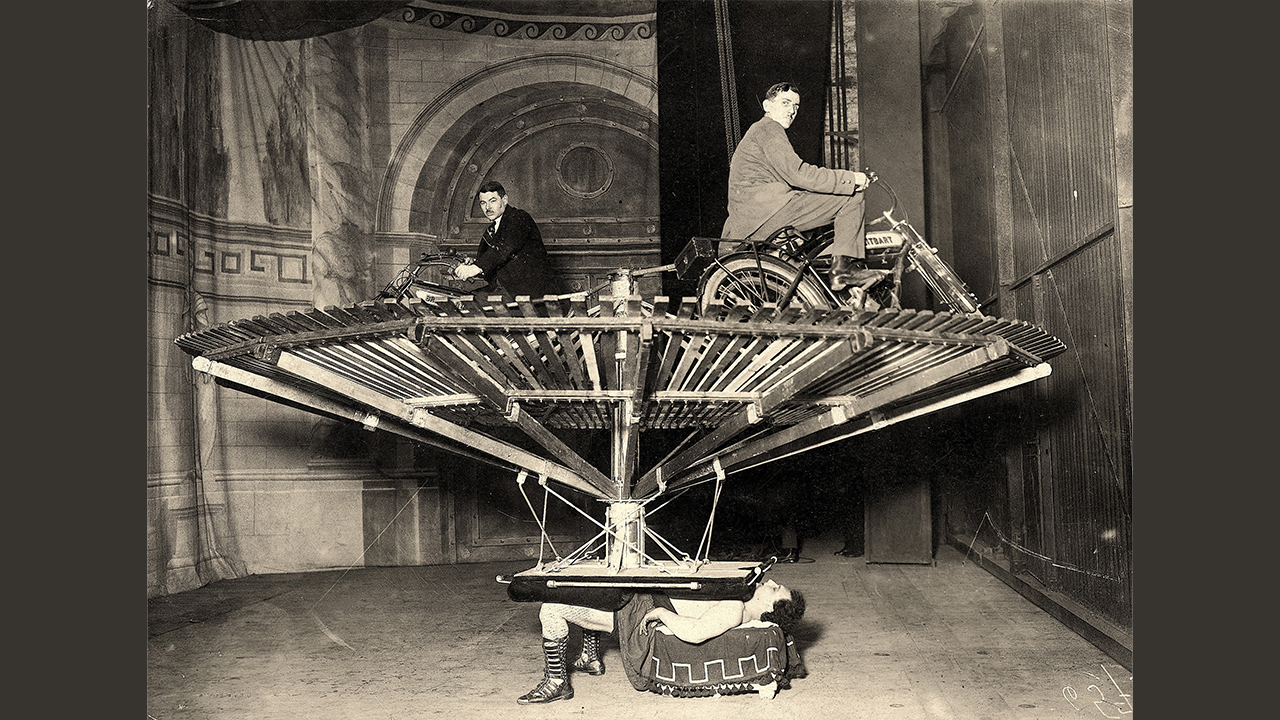The Brilliant Dr. William Beaumont: Unethical or Just Aloof?
June 15, 2023

Dr. William Beaumont—wealthy, respected, refined—leans over the body of Alexis St. Martin—an illiterate nineteen-year-old French Canadian—and threads a piece of string through an accidental opening. Dangling the thread down into St. Martin’s stomach, Beaumont swishes it about, then, at timed intervals, hoists up the piece of raw or cooked meat tied to the end to see how it is being digested.
Could any relationship be as intimate and as unequal?
St. Martin was accidentally shot in 1822 when a hunting rifle went off in the American Fur Company store at Fort Mackinac. Beaumont, a military doctor, “found a portion of the Lungs as large as a turkey’s egg protruding through the external wound, lacerated and burnt, and below this, another protrusion resembling a portion of the Stomach…. I found it to be actually the Stomach, with a puncture in the protruding portion large enough to receive my fore-finger.” St. Martin’s breakfast was spilling out of that hole.
Beaumont saved St. Martin’s life, but part of the wounded stomach adhered to intercostal muscles, creating a fistula that refused to heal. A year later, in 1823, Beaumont dripped a laxative through the hole and giddily announced that it had been “administered, it is presumed, as never medicine was before administered to man since the creation of the world!” In 1825, Beaumont published a description of St. Martin’s injury and added, “This case affords an excellent opportunity for experimenting upon the gastric fluids and process of digestion. It would give no pain, nor cause the least uneasiness, to extract a gill of fluid every two or three days….”
Over the next eight years, Beaumont will conduct well over two hundred such experiments on Alexis St. Martin. The forays often leave St. Martin queasy, constipated, crampy, or headachy. “When the bulb is sunk low into the stomach, and suffered to remain there a minute or two, it gives severe pain and distress…and leaves a sense of soreness,” Beaumont jots in his ever-present notebook. Though St. Martin began the project overwhelmed with gratitude to Beaumont for saving his life, he is soon grumpy and reluctant. Beaumont pronounces him ungrateful. (How could anyone turn down the joy of having stuff dangled into him on a string, in return for room, board, and $150 a year?)
Beaumont is thought charitable—especially by himself—because he initially took St. Martin into his own home as a hired hand. This was done “from mere motives of charity, and a disposition to save his life or at least to make him comfortable,” he writes. But he soon persuades the Army to enlist St. Martin and assign him as Beaumont’s assistant, thus relieving the doctor of expense and making sure that his valuable subject will be pursued and punished if he goes AWOL. Little affection passes between the two men. In letters to friends, Beaumont calls St. Martin a villain and a drunkard. When they travel together to D.C., they wind up spending Christmas Day together, and Beaumont notes that St. Martin is drinking heavily and short-tempered, and his mood is definitely affecting his digestion.
Beaumont’s tone is often scathing, an attitude shrugged off for decades as the natural result of class difference. Yet he did not come from money himself; he left home in 1806 with a horse and sleigh, a barrel of cider, and $100. Perhaps he despises his patient for turning to drink—after realizing he must live with a gaping stomach, mocked and disabled for the rest of his life. Perhaps they could have collaborated more comfortably if St. Martin had pulled himself together, educated himself, and taken a sober and ambitious path forward? After all, when Beaumont was his age, he was apprenticing with a physician, learning by observations he carefully jotted in his notebooks. He performed amputations and autopsies during the War of 1812, saw horrors, has remained dispassionate.
Perhaps too dispassionate. Does he even try to heal the fistula? One eyewitness reports that Beaumont almost immediately decided to leave the opening, realizing it could be of scientific interest. Beaumont insists that he spent the first eight or ten months trying to heal it, then finally decided that the only solution was to stitch the sides of the hole together, “an operation to which the patient would not submit.” But how much does St. Martin, who could only sign his name with an X, know about his medical options?
Or does the greater good make that question irrelevant? Until these experiments, physicians here and in Europe argued about whether digestion was mechanical, with the stomach squeezing, mashing, and pounding the food to a pulp, or chemical. Beaumont is proving that digestion is chemical. He fully describes the workings of gastric juice; distinguishes it from mucus; confirms that hydrochloric acid is its key ingredient; and documents how digestion is influenced by what today we would call stress (but in his experiments are St. Martin’s rages and drinking bouts).
Impressive results. Still, it is hard not to cheer when St. Martin breaks his contract and leaves for good, desperate to be back home with his family. Beaumont tries again and again to persuade him to return. Six times, St. Martin seems to consider it, but illness, intemperance and his wife’s adamant refusal intervene. “I am much obl[iged] to you for what you have done and if it was in my power I should [do] all I could for you with pleasure,” he writes.
Beaumont is less cordial in his frustrated letters to close friends. “I know well his disposition & his ugliness,” Beaumont writes, predicting that he would regain St. Martin as soon as he became too “miserably poor & wretched.” “I constantly fear he may lease himself to some of the medical men in Canada, & get his case into the hands of the English Doctors.” Yet St. Martin, who could use the money, staunchly refuses all offers, explaining that he is still legally bound to Beaumont. Who tries yet again, raising the annual offer to $500 and telling a cousin, “I think he will take the bait & come on this fall; and when I get him alone again into my keeping & engagement, I will take good care to control him as I please.” To a more distant friend, Beaumont writes on the same day, “I do, indeed, hope to see him yet, if only to make him more comfortable & contented while he lives.”
The exploitation and hypocrisy are unmistakable—and surely St. Martin felt them too. “The greater good” is dangerous territory, because it fast becomes more expedient and more comfortable to disrespect, at least privately, the individual whose body must be used. It is instrumental; its dignity can be ignored. All the excitement centers on what can be learned. And if St. Martin is furious or disgusted in the process, all the better; we can see what that does to his tummy.
The year after St. Martin “absconds,” Beaumont is transferred to St. Louis, where the military allows him a lucrative private practice. At sixty-eight, he slips on the ice and hits his head, dying soon after. Irony cooperates: his patient outlives him by twenty-seven years. Because his fistula made it impossible to return to his work, he stays poor and eventually falls for the lure of a charlatan who parades him around the country in a sort of medical freak show. When he dies, his family leaves his body in the sunshine to decompose, then has it buried eight feet deep, all to discourage the “resurrectionists” that physicians might have paid to exhume the corpse.
Beaumont has a beautiful grave at Bellefontaine Cemetery, and annual ceremonies are held at his graveside every year in commemoration. The undisputed Father of Gastric Physiology, he is lauded by his profession, with hospitals named for him all over the country. St. Louis bestows his name upon a high school and a medical college (later acquired by Saint Louis University School of Medicine). The Missouri State Medical Association describes him as “beloved by all who knew him.”
Except perhaps the man in closest proximity.
William Beaumont’s notebooks and papers are part of the William Beaumont Collection at Washington University School of Medicine’s Bernard Becker Medical Library.
Read more by Jeannette Cooperman here.





